A magical meeting with Astor Piazolla's music
The eyes full of life and curiosity, a child's gaze wouldn't make you think that Alejandro Drago is 40 years old. “He's the ageless man”, somebody in the audience said. Actually, even the stage look gives you this image. The black shirt pulled out of the pants, the vivaciousness of the movements send your thoughts to a young rebel of Piazzola's music, rather than to a “live legend”.
Alejandro Drago performed, Thursday evening, his first recital in Romania. He evolved on the Synagogue's stage in Bistrita, with the help of musicians from all over the world. He had beside him the following people: Dana Tolan from Bistrita (violin), who currently practices in the United States, Lokodi Karoly (violin), Molnar Jozsef (viola), Kostyak Marton (contrabass), Raluca Sabau (piano) from Targu-Mures and Francois Chanon (cello) – France.
The program contained musical arrangements from Jacob Gade, Angel Villoldo, Vicente Greco and...Astor Piazzolla.
The performance was like a shot with immediate effect. It was like an oasis of silence and beauty in a world in which everything moves fast and very fast, in a world filled with bitterness. Piazzola's music opened the gate to my soul and chased away all the thoughts that ran in a hurry through my mind, giving it no time to calm down.
Alejandro Drago came to Bistrita. He came and embellished a few hours of our lives. He made me forget everything...The interview with Alejandro Drago, with Dana Tolan stole a few tears from me...
How exactly was that Thursday of June the third? I don't quite remember. I only know it was a marvelous evening made possible by the Cultural Foundation “Concerts Society” Bistrita.
This was one of Gavril Tarmure's dreams. It became reality and I hope he will continue to delight us.
I want to thank Mr. Tarmure for the opportunity he gave me to speak with Alejandro Drago, Dana Tolan. The interviews with these two magicians of the classical music can be read in the next issue of our paper.
The roots of the extraordinary musical talent of Alejandro Drago come all the way from his native Argentina. As a child he accompanied everywhere his mother, a tango dancer, and so he met the violinist Antonio Agri and Astor Piazzolla, spending many years in their company. Agri recommended Alejandro to a member of his string ensemble, who initiated him in the foundations of the musical theory. Later, Alejandro benefits from a scholarship offered by the Russian government and graduates from the State Conservatoire in Moscow. These small episodes, part of the history of the conductor, of the violinist, contributed in creating a slightly unusual image for such a character.
Alejandro Drago seems reachable in spite of the world renown as musical genius, with which he doesn't reconciles.
In the present, Alejandro Drago is the director of the String Orchestra of North Dakota University (USA).
Rep.: Piazzola in a synagogue....What did you think about performing on a synagogue's stage? Actually people put their hopes, their sufferings in a synagogue. What are your thoughts about performing in a synagogue?
Alejandro Drago: Well I have chiefly two thoughts about that. First of all I don't know how much you know about tango, but I am sure that even a casual listener to tango knows the bandoneon...this kind of small concertina. That instrument was created in Germany...I don't remember exactly when, but I gather it was somewhere in the middle of the nineteenth century. Now, that instrument was created actually as a market move, so to say, for small churches in Germany to replace the organ, because they couldn't afford the organ. So that is why the buttons of the bandoneon have that strange kind of distribution, because they were meant for simple harmonies to be grabbed very easily...like G major chord, C major chord, F major chord...and only throughout the years they added chromatic buttons. Now you might wonder: why is that relevant? Well, it's kind of a paradox of the history of tango that an instrument created for the church, for the sacred services ended up being the flagship instrument of a genre of music that was basically played in brothels. It's not just me underscoring this paradox. Actually Piazzola spooked openly about this in his famous 1987 concert in Central Park in New York. If you buy the CD you will see that the first track it's his speech. Piazzola lived in New York since he was 6 until he was 16, so his English was absolutely perfect with a strong new-york accent actually . And he underscored this paradox in his speech. Now these leads me to my second thought and that is that the conflict between the spiritual and the body, the essentials and the mystical-transcendental...well that is a problem only for our Judeo - Christian civilization because old civilizations don't have that problem. They don't see a problem in that. I lived many years and traveled regularly to Brazil, I am fluent in Portuguese, I have lots of friends there so Brazil is another one of my places to withdraw and Argentina too probably. And I can tell you: they don't have that problem! They relate to their bodies in a very natural way: they kiss a lot, they hug a lot and they dance a lot...they are big dancers, I mean not necessarily good dancers, some of them are bad dancers, but they just dance out of joy. And they dance when they are sad, and they dance when they are happy and, in most churches, they have very loud music and they don't see an opposition in that. So, if anything, I would say that music is that little unique, marvelous, magic trick that builds the bridge!
Rep.: How did you manage to build that whole group, to give the impression that you have experience playing together for such a long time, even if you only rehearsed together for just two days?
Alejandro Drago: Well there are a number of factors here. First: it was a very fortunate selection, made by Mr. Tarmure, of musicians that he invited. I was a little concerned about that because, and that leads us to all the aspects of your question, I know this repertoire very well and I know how challenging it is for people who don't have experience with this kind of music. So you need a special kind of musician so you can put together this group in just two or three days. Of course he has to be good, a good musician...that goes without saying...but you need more than that. You need a willingness to engage in something that is not your routine, your professional routine. You have to step into uncharted territory. So those are the psychological or character qualities to look for. You have to be a good reader of people to pick these musicians. It took myself years of trying people, just to get the basic chore of people with whom I feel comfortable playing this kind of repertoire and we did a very good concert in Minneapolis recently with that people. And we worked probably as much as we worked here, with the additional complication that the group was bigger, so conducting the group was actually more complicated. Nevertheless the results were fantastic. So, from my part you have to understand that, with one or two exceptions, I wrote every single arrangement that you heard tonight...on every single note of every single arrangement I spent time. And, of course, it's kind of unavoidable to feel about each note, each bowing, each harmony a little bit like as of a child, you know? Even if it's not your child, you babysat the child so that puts me in an advantageous position to guide the process because, after having written all these and played that many times in many different countries and with different musicians, I know the basic two-three-four issues that each one has. However, it is also challenging for me psychologically because I know every single note so, anything that it's not there....it's like aarrgghh! Of course it's tempting to yield to your worst psychological qualities and just start screaming at the musicians and telling them: “Why didn't you learn your music in time? Or did you wait for us to gather here and than make so many errors? To make us understand how difficult it is even if I told you in the e-mail that these is difficult?” So that's my challenge! Since I'm a teacher myself, I teach at the university, I taught for many years...I'm 40 and I taught ever since I was 17, so that is 23 years, I know that is not the best way of getting the most out of the people. You have to underscore what they do well and show the way to the next step, so they would feel rewarded by their own progress. Sometimes that's not easy! But in the case of this ensemble it was easy because that willingness, that I was speaking about a minute ago, was there. All of them wanted to engage in this and wanted to do that! And than there is, of course, a next step when they start discovering the fascinating world that is hidden in this music. Than there is there own initiative: they want to do more, they want to have the ball, they want to have additional explanations...well then you made a believer, you know? And things take a totally different turn starting there. So what you saw is a result of a very intensive process, like I just described, in just a half and two days. And it's my pleasure and my pride to be able to lead that kind of process among professional musicians all around the world.
Rep.: Supposedly everybody that played tonight would be at the table. What would be your first words to them after the concert?
Alejandro Drago: Multumesc! Thank you, thank you! You know, I was talking with one of the musicians in my way back here, and he was really touched by the experience. I told him about a conversation in which I participated unwillingly in Atlanta, Georgia in the United States. The conversation itself is irrelevant, but at some point these person was speaking about the problems between the different tango groups in Atlanta and said: “Man, I don't know why these quarrels and all these problems. After all it's just a dance!” And my first reaction, the gut reaction, was like: “What a heck is wrong with you? You're talking about myself, my country, my culture, things that are meaningful to me!” Imagine that somebody tells you: well you are born in Romania, you are speaking perfect Romanian, what do you need that Hungarian thing of yours? Just stop speaking Hungarian, forget that language, nobody speaks it anyway...what would your reaction be? For me, it might well be that Hungarian language is a language spoken by just 7 million crazy people who understand that language. But for you it's who you are, you see? And tango for me it's not just another music that I play to make a living, it's who I am. I was born into this world, which is a wider world than jazz music. It's a music genre, it's a kind of dance, it's a literary genre or a literary school or an array of literary schools, but first and foremost it is a world view. If you ever get to spend enough time in Buenos Aires and relate to the people of Buenos Aires, you understand that tango or the culture of tango just expresses the world view of a certain tribe, if you want to put that way, the city of Buenos Aires. So, thank you for engaging in that because I came here to share who I am by means of music.
Rep.: How did you “feel” the audience? Do you play for the audience? Do you play for yourself?
Alejandro Drago: That's an interesting question. These audience was a very good one. I personally measure the quality of an audience by the quality of silences that happen. Imagine silence like an arrow that points the wind, and if it is well lubricated and works fine it points always in the direction of the wind. So audience silences have different qualities. Sometimes they match meaningfully the music, and sometimes it's like the cycles of silence and slight noise don't have any relationship with the music. Then you know that the public was not engaged and that was not certainly the case today. The silences were meaningful, they existed where the music demanded those silences. I can say that the public was collectively engaged, which is a very good sign. I was also very happy to see the fool house. Now do I play for myself, do I play for the audience? I think that ultimately we all play for some transcendental listener that is somewhere beyond yourself and the audience. If you are a believer, that probably is God. If you are not, than you can think that in the complex order of the universe you're fulfilling a role that is somehow important. So it's more than playing for yourself or playing for the audience, it is the playing itself that takes place. And there is an intensity there, that is not always related to a person, to yourself, to the guy who is listening. What comes to my mind now is the cellist from Sarajevo. I was in Sarajevo like a week ago. And you know what happened: they started bombing and destroyed the National Library...This man, I don't know if in a sign of protest, despair, or what, would go every day to play Bach on a cello, on the ruins of that place. Who was he playing for? I don't know! But it was important that he played...And we keep playing. I kept playing during the revolution in 1991 in Russia and the constitutional crisis in 1993...I actually spent three days in the underground to avoid snipers because Moscow was full of them...and people kept playing during the war. Who do you play for? I don't know, but we keep playing. And I'm glad that people engage with that playing.
Rep.: During the concert you seem very focused, it seems that nothing can break that concentration. At the end of the concert, how do you come out of that state?
Alejandro Drago: It's not easy actually. Particularly with concerts like this one today, that did have that energy...Sometimes you play your gig, you get your check and go home and forget about that the next minute! Well this is not certainly the case! With this program it wasn't today the case...I don't know if you actually exit it. You just transform it into something else, into socializing, into discussions with your colleagues, into receiving the credit of the public, into just looking at the city as you go by to your hotel...it transforms into something else. And than you slow down, and than you sleep for seven or eight hours non-stop...But it's not always easy...I remember playing in Brazil a couple of times in a very strange place, and I played in strange places believe me, but this one was a castle. An extremely rich person built this castle. There was a festival there, before us the Guarneri Quartet played. I was soloing with this Austrian orchestra. There was a particularly touching beauty to this castle, a new construction also. It was the end of the tour with this orchestra and it had been a very complicated day for a number of reasons, but the conductor was on top of everything, he kept his head, he fixed every problem. And when it came to playing, I cannot tell you exactly what...I think the Tibetans call it “drala”-the magic of the moment, I remembered something that happened to me in 1999. I have a very good Serbian friend, Sonja, who's a pianist, and when the NATO started bombing Serbia I was very concerned. We haven't seen each other in years. So I called her old number and her father answered the phone. Now my Serbian is quite rusty but I'm good at Russian and he happened to speak good Russian. He told me he was Sonja's father and I asked him what could I do for them. Was it possible for me to sign an invitation for them to leave the country and come to Argentina for a period? I don't know, something. He thanked me and the next day I get a call at 7 am and it was Sonja. “Sashenka”, she calls me Sasha, “how are you doing? My father talked to me and he was crying because he was so touched that somebody from the other end of the world would think about what's going on here and would offer a hand!” So I said to her:”What can I do for you?” and she said:”Just sing about that!”...I was speachless! So many years passed but I remember that conversation, that day. I don't know why...I was about to play “Oblivion” and I stopped and I said to the conductor:”Can I say something?”. He said:”Yeah, sure!”. And I said:”In this wonderful night that we are here, I would like to dedicate this piece to the memory of a man that I briefly knew but who was grateful for kindness in life. I would like to share that with you.” So I focused fully, I played, and by the time that I finished playing not only was I crying, the conductor was crying and half of the orchestra and half of the audience. And after that I couldn't come out of this state, I actually went to my dressing room to cry. The next day, in the morning, in my hotel in Sao Paulo, I get an email from Sonja, after years of not speaking, that said:”Sasha, I don't know what happened! Yesterday I couldn't stop thinking about you. It was so strange, that I wanted to email you and tell you this. I want you to know that my father died recently and one of the last things he told me was how touched he was by your call in '99”...I won't offer you an explanation about these because I don't have one and don't pretend I have one. I'm giving you just the facts. But that night I couldn't come out of it...something special happened...but you don't have to quote the full story.
Rep.: When did you first realized that your are not just for yourself, that you have to share the talent you have with others, that you leave every time a part of Alejandro to others?
Alejandro Drago: Yeah...That's exactly the case. I think that's the case with everybody, to a certain extant...When you're a kid death and suffering do not exist, when you are older death and suffering are things that you hear about, but as you grow into an adult and if you have been through certain kind of experiences and certain places on the Earth, you know that death and suffering are facts of life. Actually they are much more widespread and common that one would want to and the life's of many people in the world consist mostly of these ugly things, and that's the sad thing. There's a lot of absurd, totally incoherent, unjust in life...and then you have this: you somehow manage to learn an instrument, you somehow manage to play music and some organizations pay for your tickets and for your hotel for you to go somewhere else, which happens to be also a wonderful place, and you're there and you play, which is something you crazily enjoy doing, and still get some money for it and go back home and spend that money! There's some level of absurdity to that, yet when I was 25 I was so overwhelmed by the absurdity of that, that decided to stop playing music, to leave music. Of course my option was even more absurd: I wanted to become a linguist. I started taking Sanskrit to pass the examination for the indo-european studies at Sorbonne, in Paris. But I eventually came back to music as you see, but perhaps that was related to a part of my life, after being in a couple of revolutions, in wars and dictatorships and still being alive and playing violin. But I saw that even during the worse periods everywhere people still wanted to listen to music. Why? I was for six years in the former Soviet Union and I saw that people used to go to concerts even under the bombs! Prokofiev finished his Seventh Symphony while watching planes on the roof of the Conservatoire in San-Petersburg. People who were destroyed, overwhelmed by violence and cruelty, kept writing odes to beauty and to friendship and to love. How is that possible? I think there is a creative principle in the human being of which music is just one of the expressions. I would rather say that, at a certain level, I see myself as a member of one of those medieval orders that custody the Holy Grail and generation after generation they cherish that. There is some kind of a Jedi thing in being a violinist, I admit that! But there is a factor of humility: I will pass, we all will pass, eventually we will be forgotten, even the languages that we speak will be totally forgotten in one thousand years, but there is music and that is important. So I started to feel better about being a musician and I started valuing more the transmission itself, the fact itself more than the fact that I was the one doing it. I don't believe I have so much merit now, I am a little more objective and humble about my own merits.
Rep.: Having concerts over concerts and playing the same music transforms everything in a sort of routine. How do you overcome that routine?
Alejandro Drago: I wouldn't look at it as a routine...but I would say that you have to approach your performance with the spirit of discovery and if you play really good music then you always discover something in that music. So the fact of the same performing is always very nurturing. Now there is a sort of routine built around the concertizing. I need to confess that I am much less enthusiastic about traveling and hotels now, than I was at 21. Back then is was a great thing: a new hotel, I'm going to take this plane, now it's like: security line again, no, please no! But I accept it as a part of the job, let's put it that way, and you try to do the most out of it.
Rep.: Who would you thank for everything that you are now? As a human being and also as a professional violinist?
Alejandro Drago: The list would be really long! Certainly my parents, who in very unsystematic ways encouraged me to become who I am. Maybe precisely that kind of informal approach to education brought good results in my particular case. But my grandfather, from my mother's side, played a great role. He was a fascinating personality, and it would take hours to speak about him, but I learned four very important things from him. One is to tie my shoelaces, another one is to read the clock, the third one is to look up things in the dictionary and the fourth one is to play chess, which is a big passion I have but I don't have the time for it. The most important thing is that he was very encouraging about inquires, he stimulated me to become a very curious person towards my work. And in music, of course, I have to be eternally grateful to Antonio Agri, the first violinist who, at a certain level, discovered my potential and bugged my mother to take me to violin lessons. And then, of course, my violin teachers, mainly my teacher in Argentina, Szimsia Bajour, a polish Jew emigrated to Argentina, he was a student of Oistrakh. He taught me what really quality, discipline and commitment mean. And my teacher in Russia, Marina Yashvili, who showed me a completely new world in music, what really being a performer means. And the list goes on and on, of course.
Rep.: What is your biggest dream at this point? Artistically and generally?
Alejandro Drago: Becoming the sultan of Brunei is not a part of it, right? Artistically I have several goals, I wouldn't call them dreams, because the goals are means to an end. So those intermediate goals would be: first to raise the level of my violin studio at my university. I want to see everyday people, students in whose future I believe. I need that. I am working really seriously towards that, so the quality of my students has improved and will improve. Because I would like to think at my violin studio more in terms as of a renaissance atelier in which older artists would live together, work together with younger artists, but they are all artists and they share there knowledge and they learn through a process of exchange more than through a systematic process of teaching. That is a big goal and, to a certain extent, that might be a dream. Similarly, I am trying to create a chamber orchestra in the city where I live, with money enough to invite my friends a couple of times a year to play good music. And by friends I mean not just good friends, but good musician that are my friends, people with whom I have the syntony and I think I undertook the first step to that with the Buffalo Commons Chamber Orchestra, last April. I felt really good about that. I was about to start the concert and I looked at those faces, I had stories with each of them, years of doing music together, of starving together in Russia with some of them, struggling in so many different ways, and they were all there! It was like the end of the film “Les uns et les autres” or the end of “Underground” by Kusturica, in which all the characters are there. So I want to do that more, I want to concertize more, and keep doing both: classical music and these things, and go to places where I've never been to and where's a lot of potential. I was joking about Brunei but actually I do have a contact in Brunei so I might end up going there next year. I hope that will happen. But ultimately, as I told you, these are means toward an end and the end is making a life in music, being a worthy knight of this music order, really taking this to a completely new level. A level in which I could be sitting at 96 years old...I know I will live only to 93, so I hope to make it to 96! When I was a child I knew exactly at what age I was going to marry, at what age I would have my first child and everything happened exactly like this, so I'm confident I would live until 93 but let's give me three more years. Imagine myself at 96 surrounded by sons, daughters, granddaughters, grand-granddaughters and grand-grand-granddaughters and a thousands students in touch...with something that would probably come after internet, some kind of telepathic chip, you think about somebody and you are in touch with this person...the best musicians in all the world, and still thinking crazy things and new ways of making better music and realizing, before I leave this world, that I enriched my life and the life of a number of people with music.
Rep.: This is more of an imaginative question. Imagine that you are sitting in the first row in the synagogue with Piazzola beside. What would Piazzola say to the Alejandro Drago in the audience about the performance of the Alejandro Drago on stage?
Alejandro Drago: Well Piazzola was a very difficult man, he was a genius. Besides a number of bitter and sarcastic comments that he would do anyway, like this famous comment: a singer performed and he was invited and he was asked what he thought about that singer. He said:”Well, he has kind of a small voice, right?....and an ugly one!” So I think he would have appreciated the energy that we brought on stage. That he would have appreciated! I am sure of that. He would have liked many of our tempos, he would have liked the flexibility of our tempos, that's something incredibly difficult to achieve, he would have liked our energy.
Rep: Thank you very much! It has been a great pleasure talking to you. Not only are you a great musician, but you are also a very generous person...a rare combination, if I might say.

Citiţi şi:
- Oana-Dinuța Cloșcă, elev la Excelenţă: I am extremely thrilled to write about my experiences as a student enrolled in the English courses held at the “Bistrița-Năsăud Centre of Excellence!
- Ruxandra Barna, elev la Excelență: A vital helping hand on my path to linguistic success!
- Sofia Rus, elevă Excelenţă: I had the pleasure to work with two of the best English teachers!
- Profesorimelody of virtuosity, Oana-Dinuța Cloșcă, elev la Centrul Judeţean de Excelenţă
- Aplauze şi ovaţii în Parlamentul Australiei pentru,,Glossă" de Mihai Eminescu




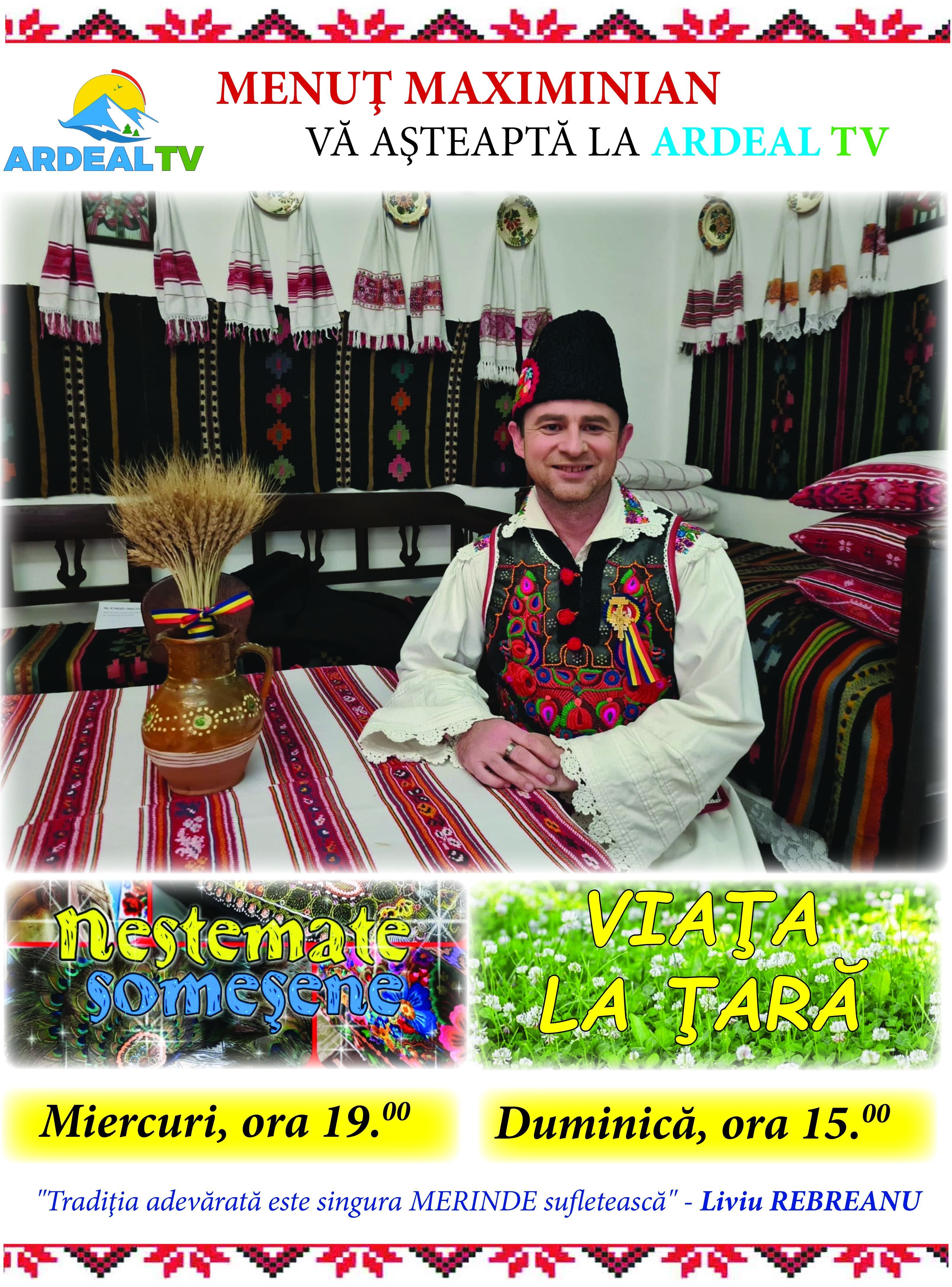
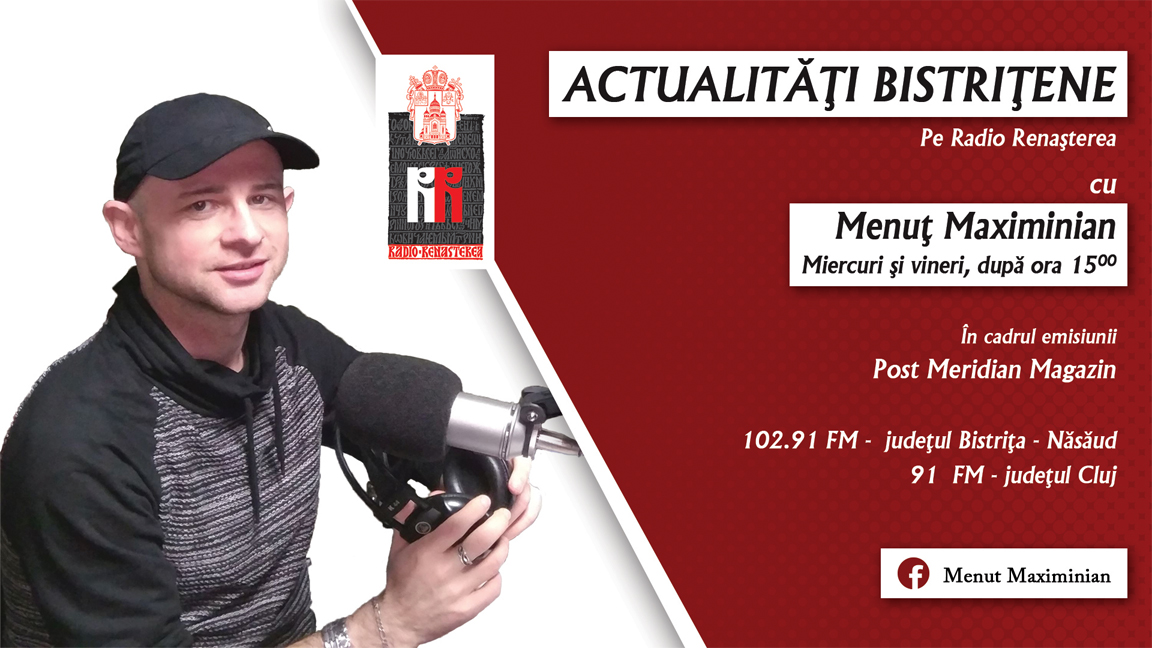















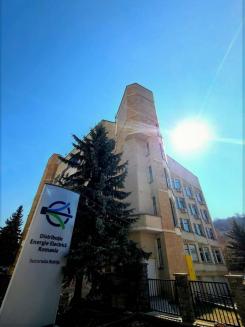

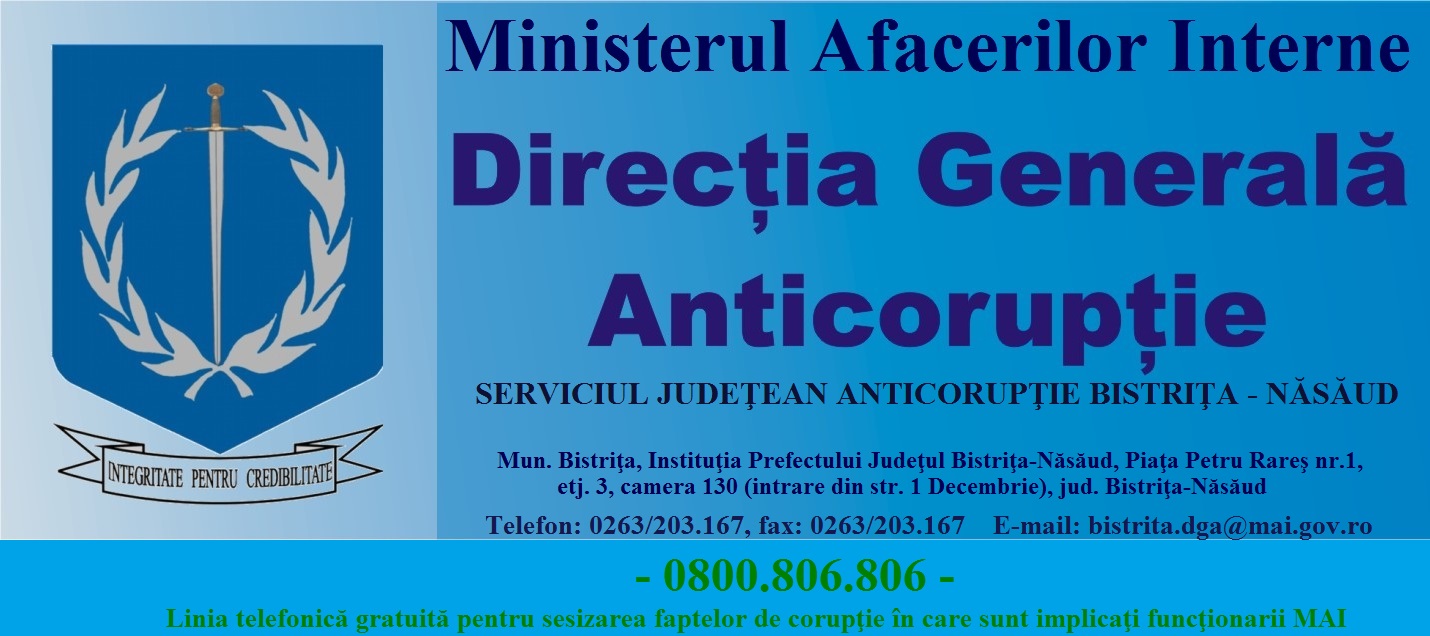

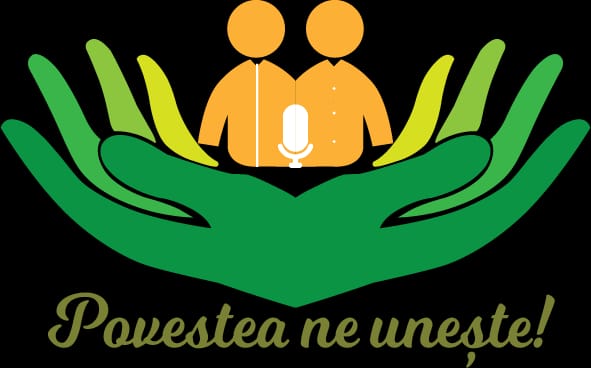
![Validate my RSS feed [Valid RSS]](/sites/default/themes/rasunetul/images/valid-rss-rogers.png)
Adaugă comentariu nou